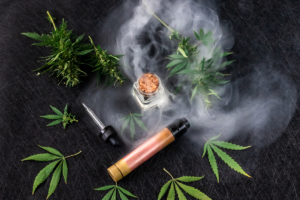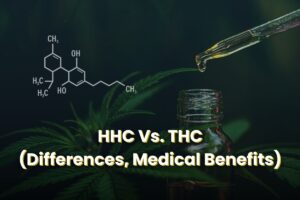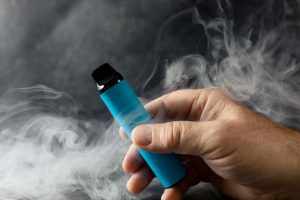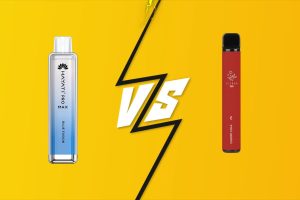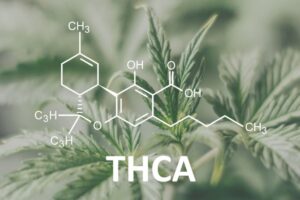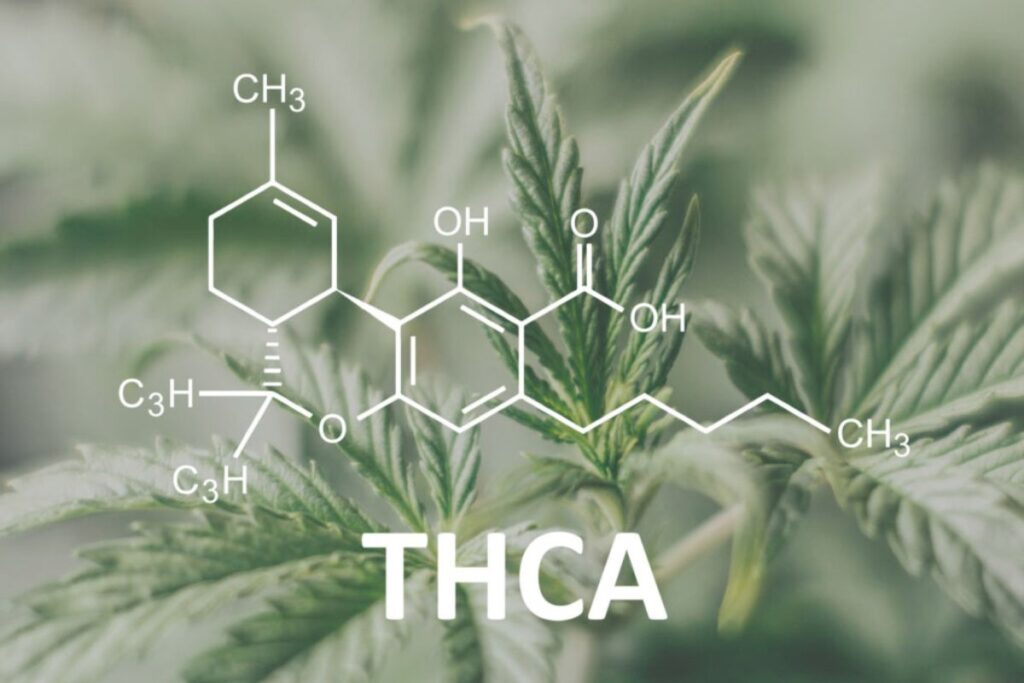
Consumers seeking affordable THC-A products must ensure they do not compromise on safety and efficacy. Low-cost THC-A items can sometimes pose risks due to contaminants, inconsistent potency, and inadequate labeling.
This article gives customers the knowledge to make informed decisions when purchasing low-cost THC-A products that maintain safety and efficacy.
Understanding THCA
THCA is the precursor to THC (tetrahydrocannabinol) and is abundant in fresh cannabis leaves and flowers.THCA is non-psychoactive in its natural form. However, when heated through smoking or vaping, THCA converts into THC, producing mind-altering effects.
Smokable THCA products, like vapes, flower, and pre-rolls elicit the following experiences:
- Euphoria: An uplifting mood and increased sense of well-being.
- Relaxation: A calming effect that helps reduce stress and anxiety.
- Enhanced Sensory Perception: Heightened senses, particularly in taste and sound.
- Appetite Stimulation: Increased hunger, often called “the munchies.”
- Pain Relief: Reduction in pain and discomfort for various conditions.
Common Risks with Low-Cost THCA Products
Contaminants, potency variability, and inadequate labeling can sometimes compromise low-cost THCA products, posing significant health risks to consumers.
Contamination
For instance, inexpensive cannabis products may be sourced from plants treated with harmful pesticides. Exposure to these chemicals can lead to adverse health effects, including respiratory issues, skin irritation, and long-term problems like endocrine disruption and carcinogenicity.
Plants can also absorb heavy metals from the soil, such as lead, mercury, and cadmium. Consuming THCA contaminated with these metals can lead to toxicity, affecting the nervous system, kidneys, and other organs.
Regarding THCA vapes, manufacturing practices may leave behind solvents like butane, propane, or ethanol used during extraction. These residual solvents can be harmful when ingested or inhaled, potentially causing headaches, respiratory problems, and other health issues.
Variability in Potency and Purity
Unethical manufacturing practices in low-cost THCA items can result in significant inconsistency in potency and purity. This variability poses several risks to consumers:
- Unexpected Potency: Customers may inadvertently consume higher doses if a product is more potent than indicated. This can lead to unanticipated psychoactive effects if the THCA has partially decarboxylated to THC. This can result in anxiety, paranoia, dizziness, and other adverse reactions.
- Insufficient Potency: Products with lower-than-claimed potency may not provide the expected therapeutic benefits, leading to ineffective treatment and frustration.
- Impurities: Poor manufacturing standards can introduce impurities into the THCA, compromising safety and effectiveness.
Inadequate Labeling and Lack of Transparency
Inadequate labeling and a lack of transparency are common issues with low-cost THCA products. These problems can significantly impact consumer safety and trust.
For example, incomplete ingredient lists can hide the presence of harmful additives, allergens, or other undesirable components. Customers with allergies or sensitivities may face serious health risks.
Some low-cost products may falsely claim benefits, THCA content, or other properties. This misinformation can lead to unrealistic expectations and potential misuse of the product.
How to Evaluate Quality & Safety
Customers should focus on several key attributes when evaluating THCA, especially low-cost options, to ensure they purchase quality and safe items.
Ensure the Product Underwent Third-Party Lab Testing
A Certificate of Analysis (COA) from an independent, accredited lab provides an unbiased verification of the product’s contents. It confirms the cannabinoid profile, potency, and safety.
Consumers should only purchase from THCA brands that publish a lab report confirming the product is free from residual solvents and contaminants and that the potency on the label matches the report.
- Residual Solvents (for Vapes and Extracts): Residual solvents from extraction processes can be harmful if inhaled or ingested. Ensure the COA confirms that the product is free from these solvents.
- Contaminants: Tests for pesticides, heavy metals, mold, and mildew are crucial to ensure the product is safe for consumption. Contaminants can cause serious health issues.
- Potency: This test verifies that the THCA content matches what the manufacturer advertises. Accurate potency ensures customers receive the expected therapeutic effects and avoid unintended or additional psychoactive effects.
Understand the Company’s Reputation
Consumers should look for THCA brands that have established credibility. The company’s history, mission, and values can give insight into its reputation. Reviews and testimonials from other customers can provide real-world feedback on the company’s products and customer service. Additionally, brands that prioritize transparency in their manufacturing processes and openly share their quality control measures are often more trustworthy. Checking for industry certifications and awards can also help identify companies with a solid quality and reliability track record.
Consumers should also research the company’s presence in the industry, including its participation in trade shows, partnerships with reputable organizations, and adherence to industry standards. Engaging with the brand on social media can offer insights into how it interacts with its customers and handles complaints or inquiries.
The Bottom Line
Ultimately, prioritizing safety and quality in THCA products is essential because cheaper products can sometimes come at a cost to health. Following the guidelines discussed in this article can help shoppers confidently choose safe, high-quality, and affordable THCA products.
